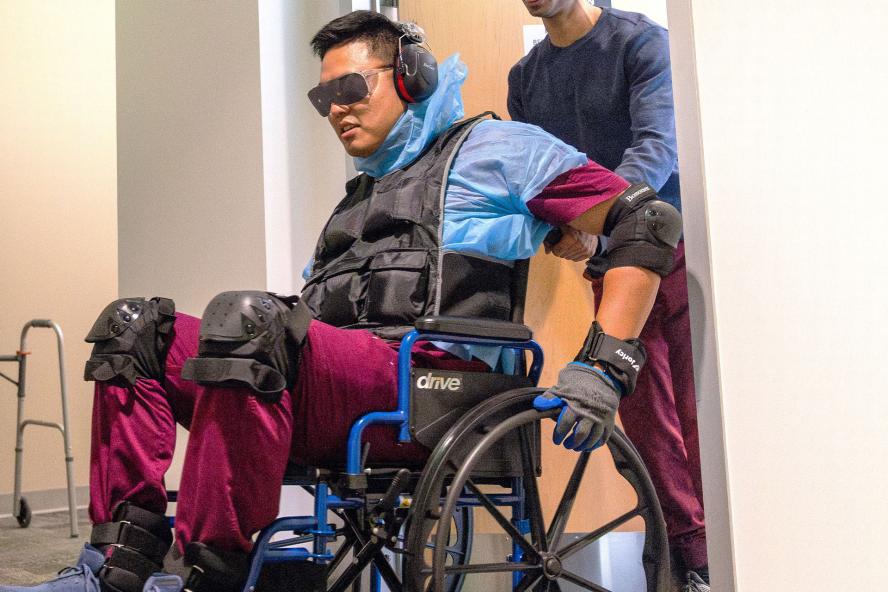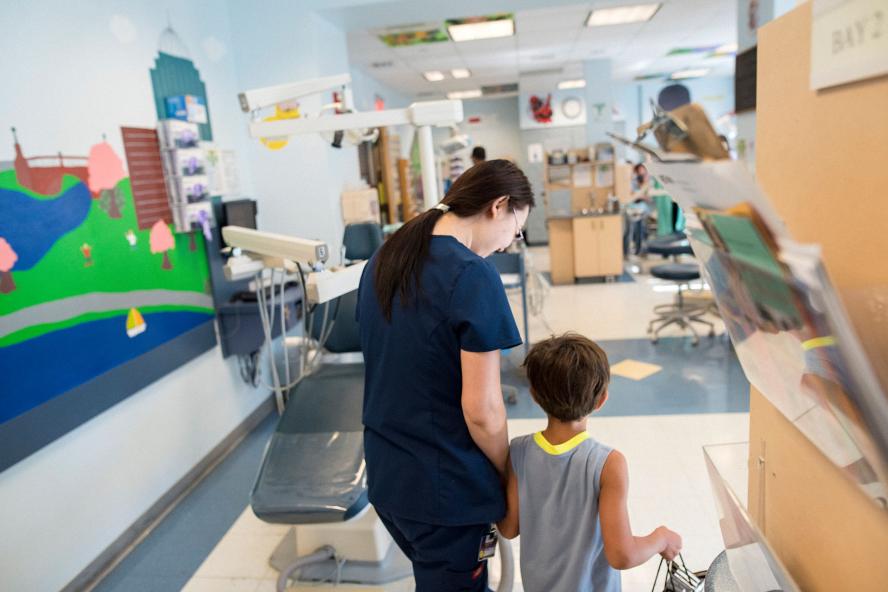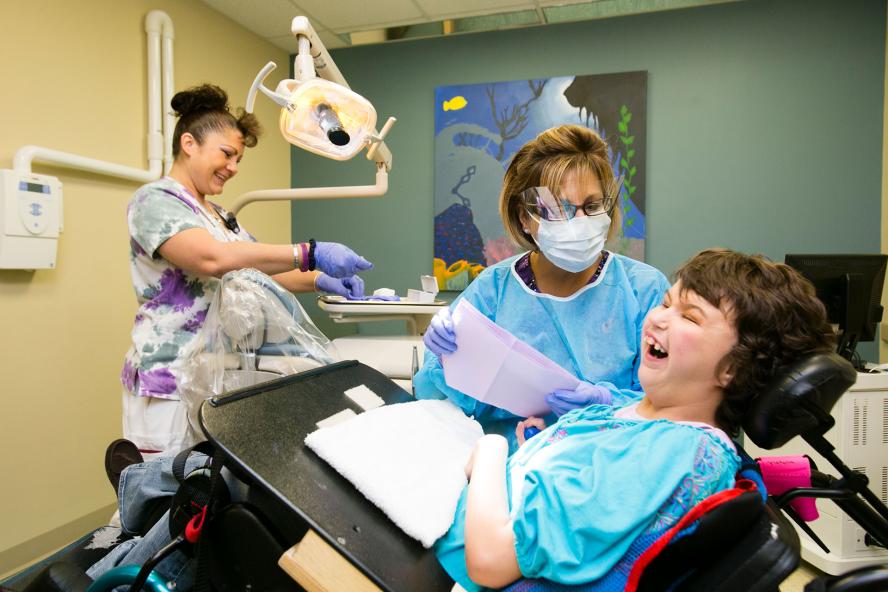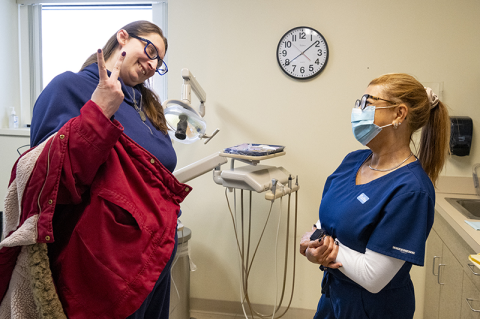PHCS Community Service Rotations
Community Service Rotations (CSL) give students the opportunity to interact with community members outside of the four-walls of the clinic. Students gain the necessary skills, knowledge, and confidence to work with diverse, often vulnerable and underserved communities. Providing outreach allows students to better understand how social determinants and health disparities affect oral health. The DPHCS oversees four CSL experiences.

Vulnerable Adults over 50/Geriatric CSL
The geriatric community service-learning rotation is a required 3rd-year course that provides in-depth exposure to working in a community-based setting with adults over 50 from culturally, linguistically, and economically diverse backgrounds at high risk for oral disease.
Populations targeted: homeless veterans, individuals with HIV/AIDS, individuals with substance use disorder, and vulnerable adults living in community settings. Sites include homeless veterans’ shelters, subsidized housing complexes, senior centers, assisted living facilities, and faith-based settings.
Dental students perform oral cancer screenings, blood pressure screenings, and assess oral health needs. Using models and an intraoral camera students teach prevention and self-care. Dietetic interns from Tufts University Friedman School of Nutrition Science and Policy also participate and comment on the nutritional status.
Lead Faculty: Dr. Karin Arsenault
Pediatric Community Service Learning (CSL)
The Pediatric community service-learning rotation is a requirement for all third-year dental students. It takes place in the Josiah Quincy Elementary school located in Boston’s Chinatown. TUSDM students are mentored by faculty and gain the necessary skills needed to perform comprehensive, evidence based, patient-centered care for the pediatric population in community-based settings including children with special health care needs.
It was created to both meet the need of this school-aged populating and to deepen TUSDM’s students’ understanding about working in community-based settings to prevent oral diseases, address frequently encountered oral problems, and promote oral health.
Lead Faculty: Dr. Martha Forero and Kathryn Dolan


Community Service Learning Externship (CSLE) Program
For 50 years, TUSDM has expanded students’ training by broadening clinical practice perspective through the Community Service Learning Externship (CSLE) Program. This is a five-week rotation for students to practice dentistry at CSLE sites across the country. It utilizes a blended framework, combining clinical practice with learning modules and seminars, to enhance student engagement and learning. The program is a required part of the dental school curriculum and occurs during the Spring semester of year 3 or during year 4. The CSLE sites are comprised of community health centers, non -profit dental clinics, correctional facilities and an Indian Health Service Center. Sites are located throughout the country.
The program is designed to cultivate awareness of the need for community service and the challenges vulnerable populations face in accessing oral health care. The program fosters intercultural understanding and respect. Students gain a greater understanding of the impact of culture on health.
Lead Faculty: Dr. Cynthia Yered
Tufts Special Care Dental Clinics Rotation
The Special Care Rotation is designed to provide greater awareness surrounding the oral health needs of persons with intellectual/developmental and acquired disabilities, including emotional, sensory and/or physical impairments. It is completed in the student’s 4th year; the rotation has both a virtual and an in-person component.
Virtual (didactic): Students complete 10 self-study modules pertaining to various aspects of caring for patients with special needs, as well as a patient-based treatment planning assignment specific to their week of rotation. Additionally, students participate in small group sessions moderated by special care faculty, during which various aspects or providing care to patients with special needs are discussed, including the treatment planning assignment for the specific week of the rotation.
In-person (clinical): Following the virtual component of the rotation, students complete a two (2) day in-person clinical rotation at one of the off-site Tufts Special Care Dental Clinics. During this experience, students treat patients with special needs together in real time with the faculty and staff at the Tufts Special Care Dental Clinics, enabling them to apply what they have learned from the didactic portion of their rotation.
Lead faculty: Dr. Darren Drag
